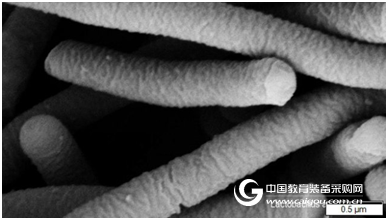
Lactobacillus parafarraginis KU495926, a lactobacillus extracted from yogurt, was blocked from a study published at the 2017 American Society for Microbiology (ASM) annual meeting by researchers at Howard University in New Orleans. 14 multi-drug resistant bacteria obtained from infected people in a hospital in Washington, DC, and so-called extended spectrum beta-lactamase (ESBL) bacteria.
ESBL bacteria produce beta-lactamases that render them resistant to certain broad-spectrum antibiotics. The researchers found that as a Gram-positive bacterium, L. parafarraginis produces a substance similar to bacteriocin, an antibacterial protein that inhibits the growth of Gram-negative ESBL pathogens and multidrug-resistant pathogens. . According to Rachelle Allen-McFarlane, a graduate student at the University of Howard's Broderick Eribo laboratory, this may be one of the few examples of the inhibition of Gram-negative bacteria by bacteriocins from Gram-positive bacteria.
Allen-McFarlane told Scientists that, in general, bacteriocins from a particular strain are only able to inhibit the growth of closely related strains. She explained that most of the time, "Gram-positive bacteria kill Gram-positive bacteria."
“My focus is on identifying bacteriocins from lactic acid bacteria that inhibit the growth of multidrug resistant Gram-negative bacteria and ESBL Gram-negative bacteria,†she said.
To investigate whether the metabolites produced by L. parafarraginis inhibit the growth of ESBL and multidrug-resistant bacteria, these researchers demonstrated for the first time that metabolites derived from L. parafarraginis can prevent the growth of these pathogens in vitro. Once this was proven to be feasible, they used flow cytometry and fluorescence microscopy to verify their findings. These experiments revealed that when certain pathogenic bacteria, including wound-derived E. coli, were added to the medium containing the L. parafarraginis metabolite, their growth was significantly inhibited.
Next, the researchers identified four bacteriocin structural genes in L. parafarraginis using PCR technology, and as a final step, confirmed that the bacteria did express these bacteriocins.
Allen-McFarlane said that in the future, she hopes to identify the specific bacteriocin produced by L. parafarraginis and demonstrate how it can inhibit many pathogens with distant relatives.
According to Allen-McFarlane, bacteriocin-producing bacteria are currently widely used in the food industry as food additives for inhibiting the growth of pathogenic bacteria. But they are not widely used in the pharmaceutical industry.
This situation may change. Allen-McFarlane said that some scientists believe that bacteriocin may be a future antibacterial agent. "In view of the antimicrobial resistance and its enormous threat to human survival, we need to start researching bacteriocins."
Shanghai Chuangsai Technology has excellent performance, interleukin cytokines, fetal bovine serum, electrophoresis equipment scientific instruments, raw material drug standards, chemical reagents, cell culture consumables, Shanghai Chuangsai, mass products special promotions, welcome to inquire!
Face Toner,Facial Toner,Skin Toner,Face Toners For Soft,Face toner for oily skin
Ningbo Roni Cosmetic Co,.Ltd , https://www.ronicosmetics.com